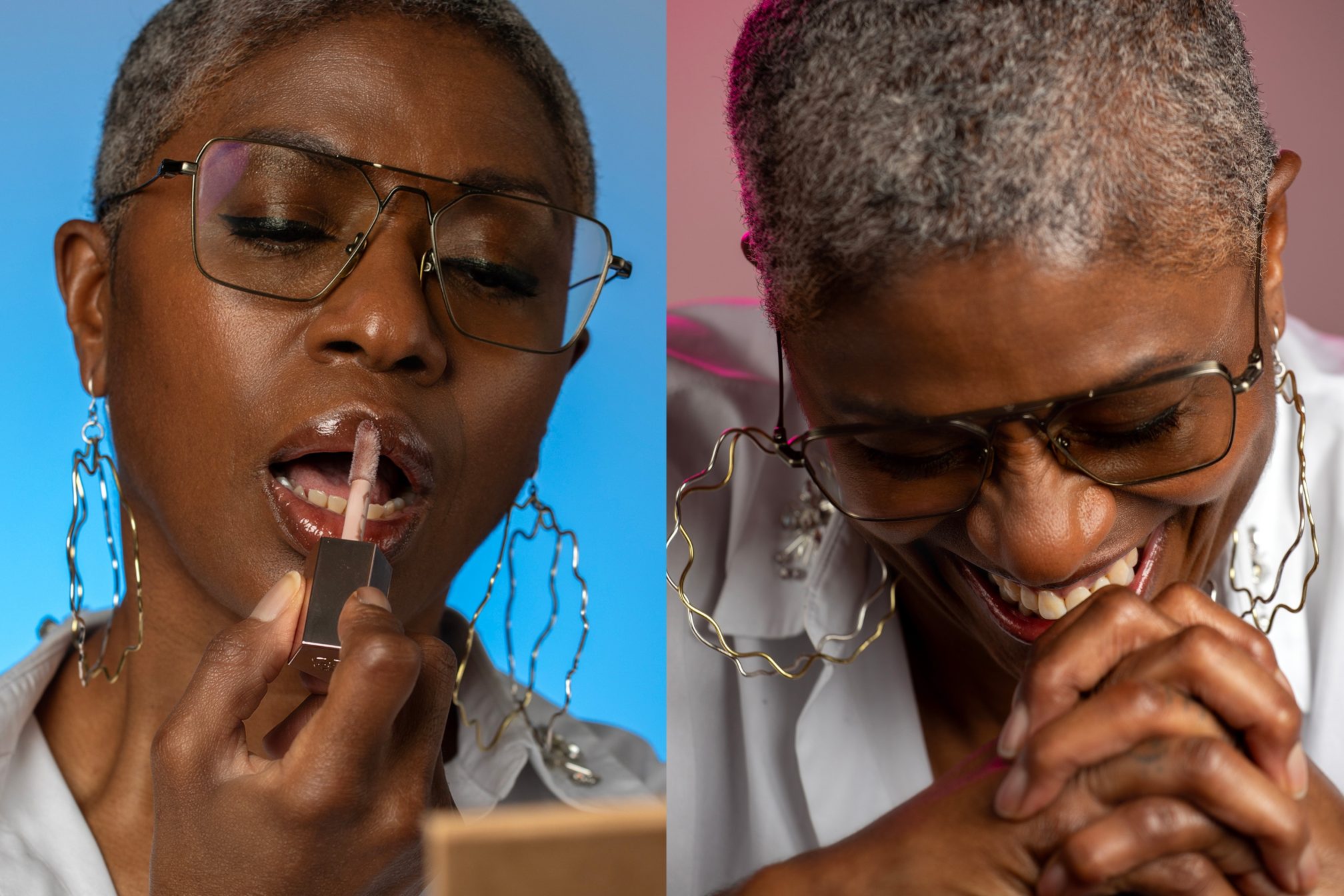 Features
Features
DJ Paulette has always been one step ahead
DJ Paulette's new book - Welcome to the club: The life and lessons of a Black woman DJ - documents her illustrious, pioneering career and wisdom gained along the way. Ahead of its release, she speaks to Kamila Rymajdo about highs, lows and breaking glass ceilings
DJ Paulette doesn’t meticulously prepare her sets ahead of time, she doesn’t need to. She knows how to read the room and plays accordingly. The fact she’s in communion with her audience is evident time and again, from how revellers hugged and kissed her following a jaw droppingly good B2B with The Blessed Madonna at this year’s Homobloc at the Warehouse Project to the way she acknowledges the appreciation she’s shown with a hand heart at the Haçienda reunion in December. It’s a skill she’s honed over the 30-plus years she’s been DJing, but she took to it naturally. Her first set, where she played funk, soul, hip hop, disco and house for five hours straight at Manchester’s Number 1 Club, went off without a hitch and as she recalls in her upcoming book Welcome to the club: The life and lessons of a Black woman DJ, “everyone danced and nobody left.”
Read this next: 10 of the best house records according to DJ Paulette
This ability to read the room is also one of the strengths of Welcome to the club, which DJ Paulette was commissioned to write by Manchester University Press during lockdown. While it’s a book about her career — which began at the queer night Flesh at The Haçienda in the early 1990s and continued with a successful stint in London, a stratospheric rise in Paris, and a disappointing spell in Ibiza, before DJ Paulette found her feet again by coming back to Manchester in 2015 — it’s essentially a book about shared experiences, by women, by Black people, by the LGBT community, that reflects recent reckonings, like Black Lives Matter and MeToo. “It’s not just my story,” DJ Paulette says over a cup of tea in Manchester’s Heaton Park nearby to where she lives, “and I didn’t want it to be, Little Miss Angry ranting, ‘Oh my, oh my!’, I wanted to show the good and the bad, but I also wanted to show the good and the bad happening for all of us across the spectrum.”
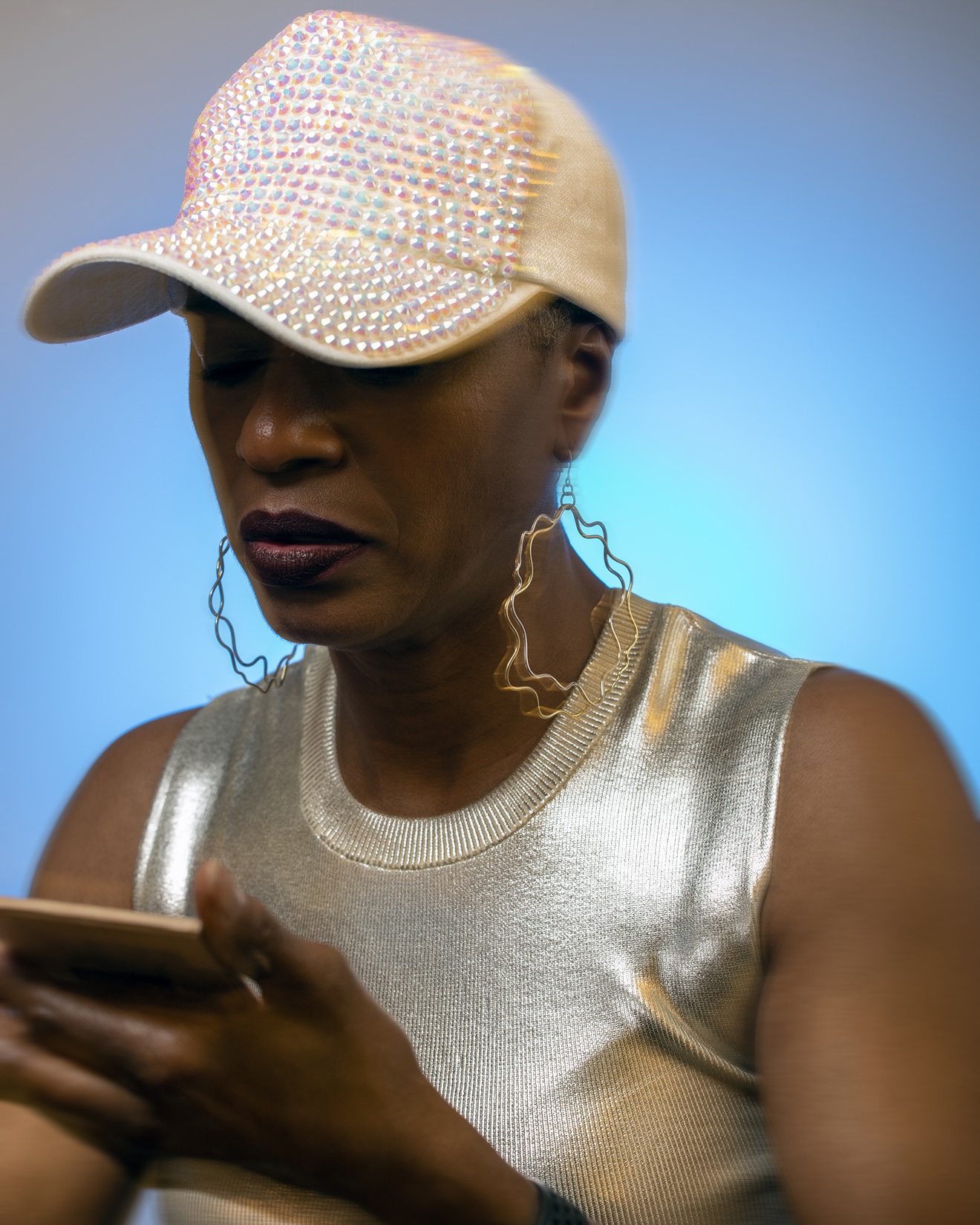
The ‘good’ in DJ Paulette’s story is detailed in exhilarating detail, bringing to life the excitement and chaos of the formative years of club culture in the UK. DJ Paulette describes how her first booking came about because the promoter had spent the whole budget on flyers and how her residency at Flesh dealt with a makeshift DJ booth fashioned out of a metal flight case and two wobbly bar tables for the turntables to stand on. Then there’s the laugh-out-loud recollection of when she DJed on ecstasy pills, that turned into a complete disaster when DJ Paulette lost the ability to read the print on the sleeves of her records. She left her twin sister Paula to take the reins, only to find that her sister was playing the same record over and over as DJ Paulette slumped down grinding her teeth in a toilet cubicle, unable to do anything about it.
The ‘bad’ takes on sexism, racism and classism that DJ Paulette and her peers have experienced, but also subjects like the loneliness of DJing and struggles with mental health, doing so with candour and often humour. “If I’ve had a breakdown, I’m not going to gloss over that and jump to the next chapter of happy, I want to deal with how that affected me, and how that affected all the people around me; I think it’s important to tell that too,” she says. She also explores how a career in DJing affects relationships and shines a light on fellow female DJs’ experiences, including the struggles of juggling playing out with motherhood. Many of the younger voices in the book illustrate how much the music industry has evolved for the better.
Read this next: We need to end sexism, misogyny and violence in dance music
But as much as DJ Paulette shares her literary stage with others, from Colleen ‘Cosmo’ Murphy to Lakuti and Jamz Supernova, it’s her own story that’s the most remarkable thing about Welcome to the club. Although well documented in articles through the years, there are aspects of DJ Paulette’s career that don’t make the cut in limited word count profiles; in book form there’s room to demonstrate just what the secret to DJ Paulette’s endurance is. Arguably, it’s her ability to predict what’s coming next, and getting one step ahead. In the mid 1990s it was internet radio, in the early 2000s, it was having her own website and blog. It’s also been about constantly evolving her skillset, from doing PR for Mercury Records to A&R for Azuli and Defected.
It’s also been about DJ Paulette’s ability to predict developments in music and adapt accordingly. “I don’t make music myself and because of that I’ve had to find music that I can create a body of music around me with, that people will identify as my sound, so I’ve had to really stay ahead of the game,” she says. This approach is in full flow during her Haçienda reunion set, where the music she plays – mostly harder tech-house mixed with choice soulful house numbers the crowd will know – contrasts with the purely nostalgic vibe of most of the other DJs. “The crowd changes, music sounds different now, you need a bigger kick, you need a more compressed middle, to fill a room that holds 10,000 people. Some of those old tracks don’t travel anymore because the production values are different,” she says.
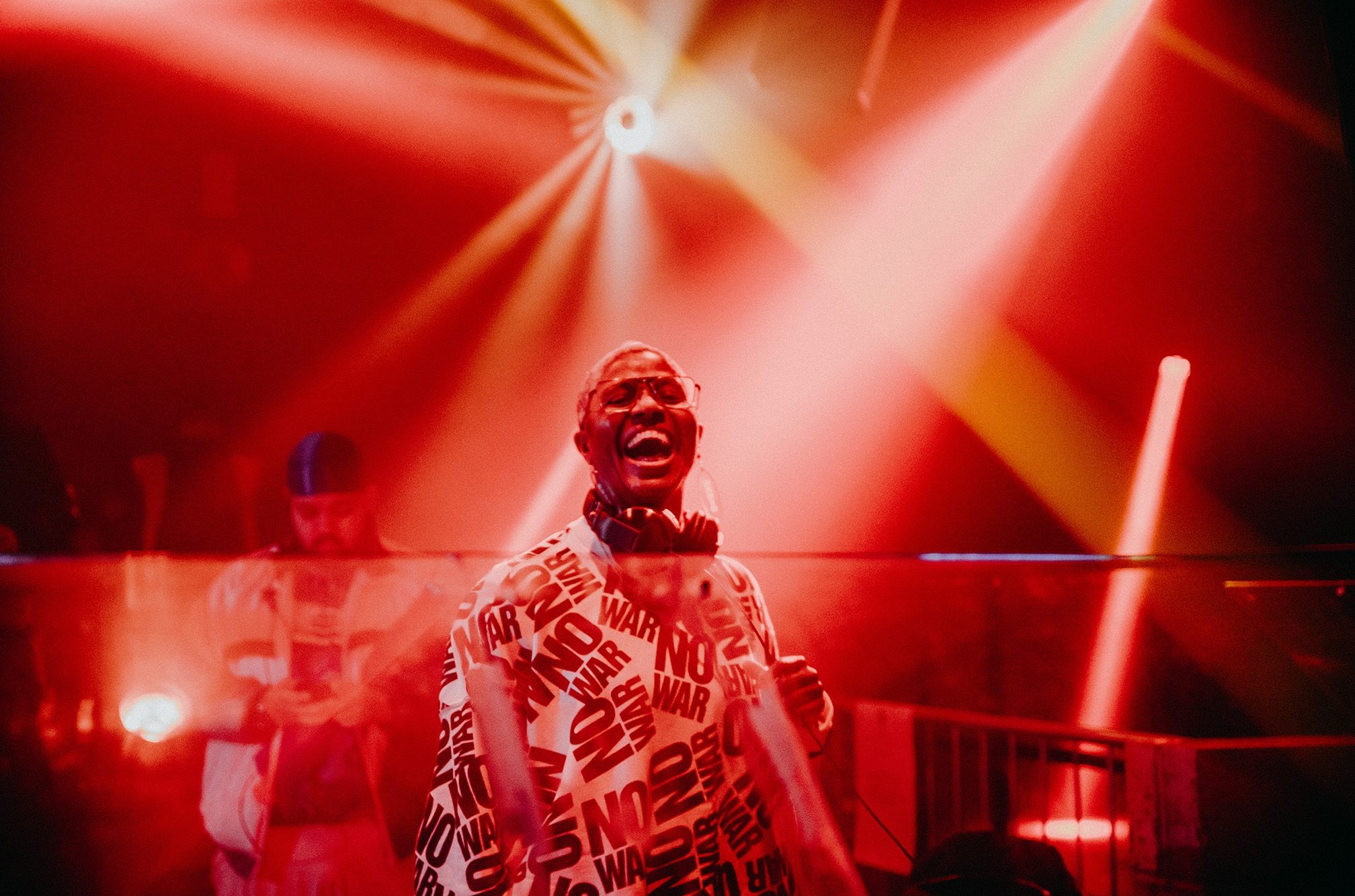
Some of the biggest highs in DJ Paulette’s book relate to her time in Paris. “I was so popular that people copied what I wore, how I looked…Clubs placed metal barriers outside to restrain my fans from surging forwards as I entered,” she recalls. But she also doesn’t shy away from describing mistakes she’s made, like selling her flat in London and spending the profits on high fashion. Other low moments were the result of developments outside of her control. For example, she writes about how the rise of lad mags in the late 1990s meant a new type of woman was being fetishized, and as a result, DJing changed too. “Still only in my thirties, I no longer ticked any of the boxes required to advance. I was free-falling without anything or anyone to stop it,” she writes in a chapter aptly titled ‘How to kill a DJ’, that also recounts how at a dinner with an agent, a booker and a promoter – all men – she was told that “no club will ever book a Black, female DJ with grey hair.”
Read this next: Estée Blu: The music industry is not a meritocracy, and it's harshest on Black women
In an industry characterised by Instagram-filtered careers where discussing failure is taboo, DJ Paulette is refreshingly open about the downsides of being a DJ, not least the fact that what she terms ‘DJ death’ is cyclical: “It might have soothed me to know that I would soon find a way to climb out of the hole that I was in. I think I would also have liked to know that, like Groundhog Day, the hole would suck me in again.” In this way, her book acts as a manual for both aspiring and established DJs alike, that she didn’t have the access to when she was starting out. But it’s also full of universal truths and advice that not only DJs or those working in the music industry will find useful. It’s how DJ Paulette intended it: “I wanted to present a more accessible way of talking about music than getting locked into the anorak-geeky [route of] ‘this record, that tune, that DJ, this producer,’ which is only interesting to DJs, it’s not interesting to a lawyer that’s reading it in New York or a doctor that’s reading it in India,” she says. “But if I talk about it in terms of how you structure your life and career, then it starts to make a bit more sense and you can transfer those skills to other disciplines.”
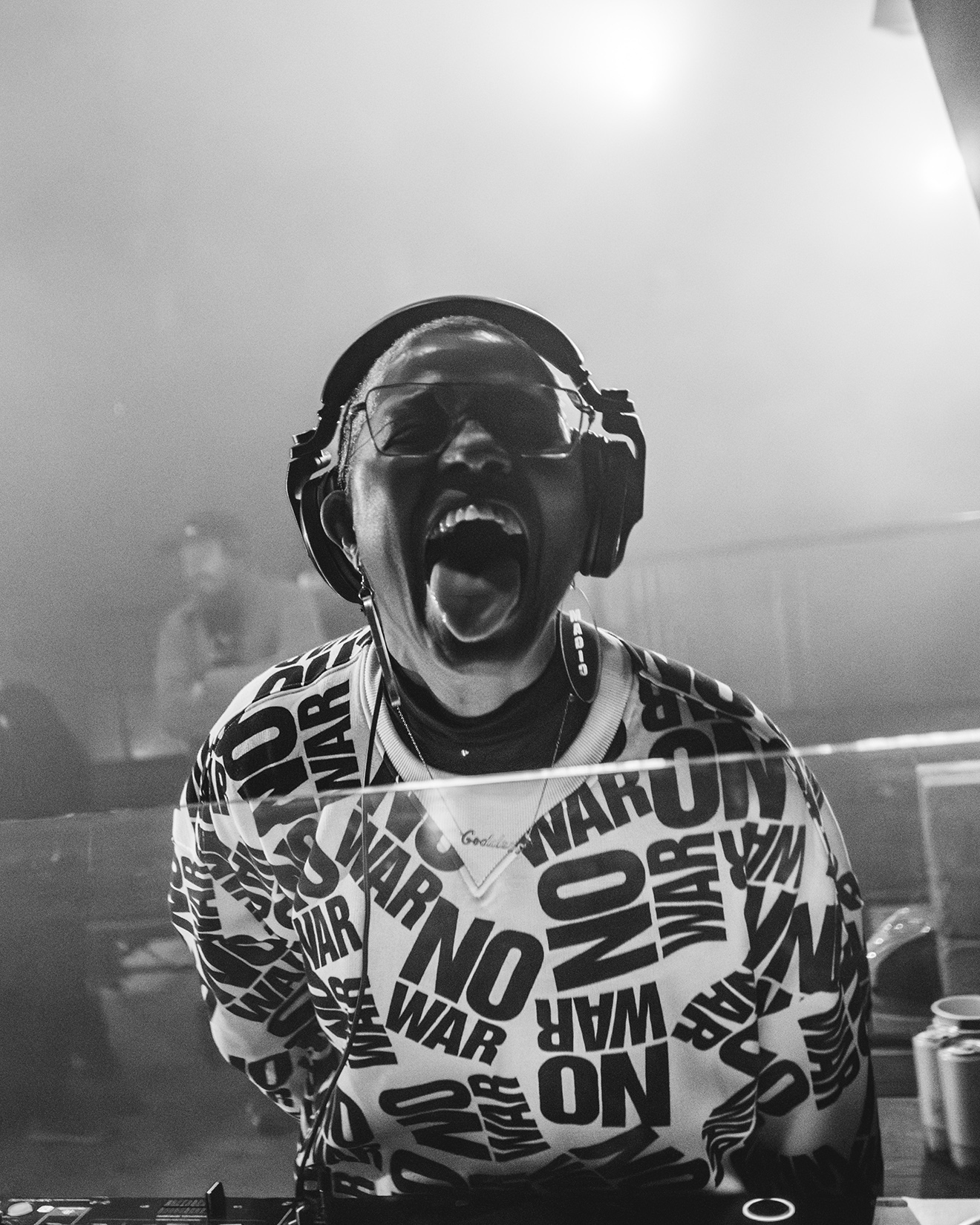
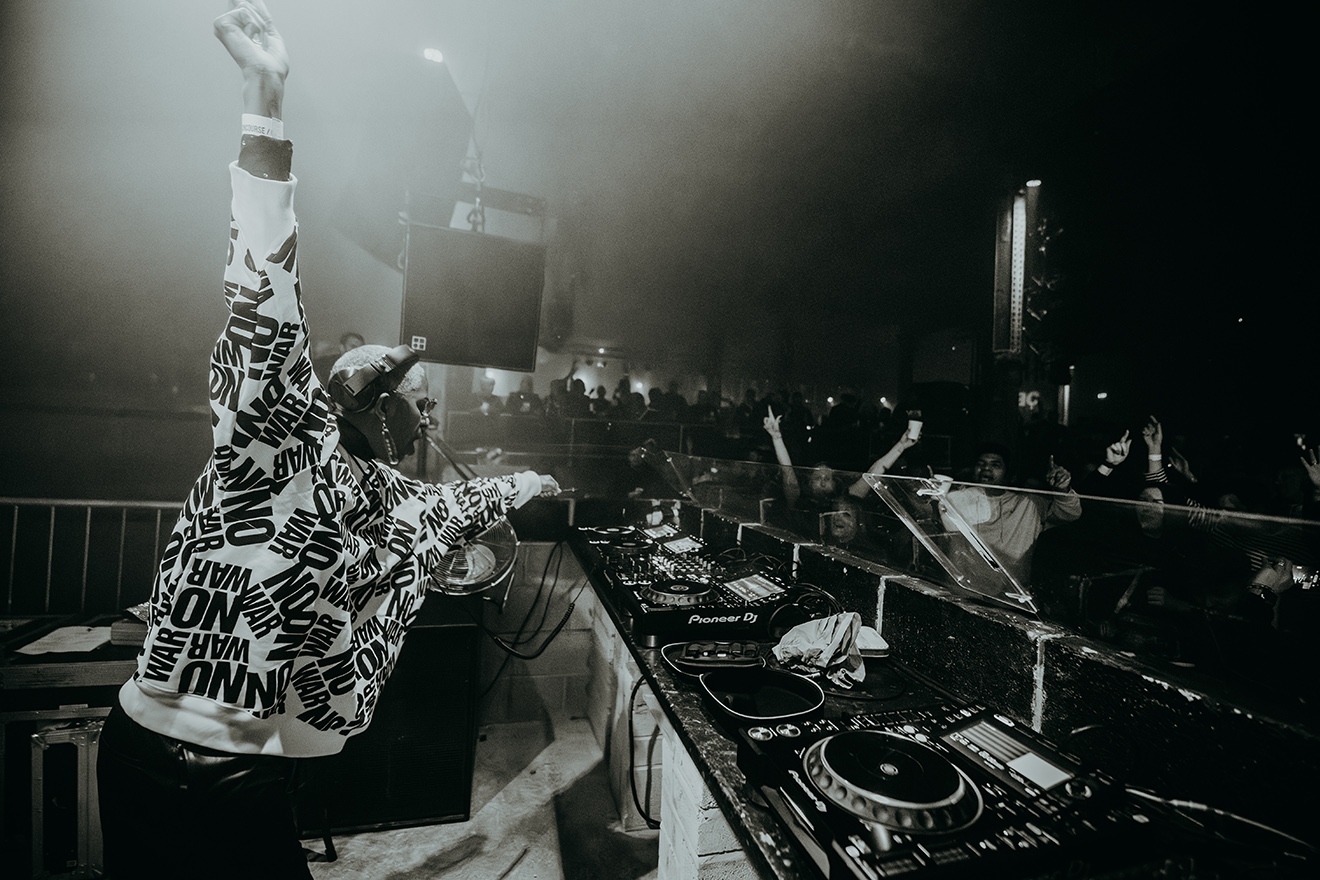
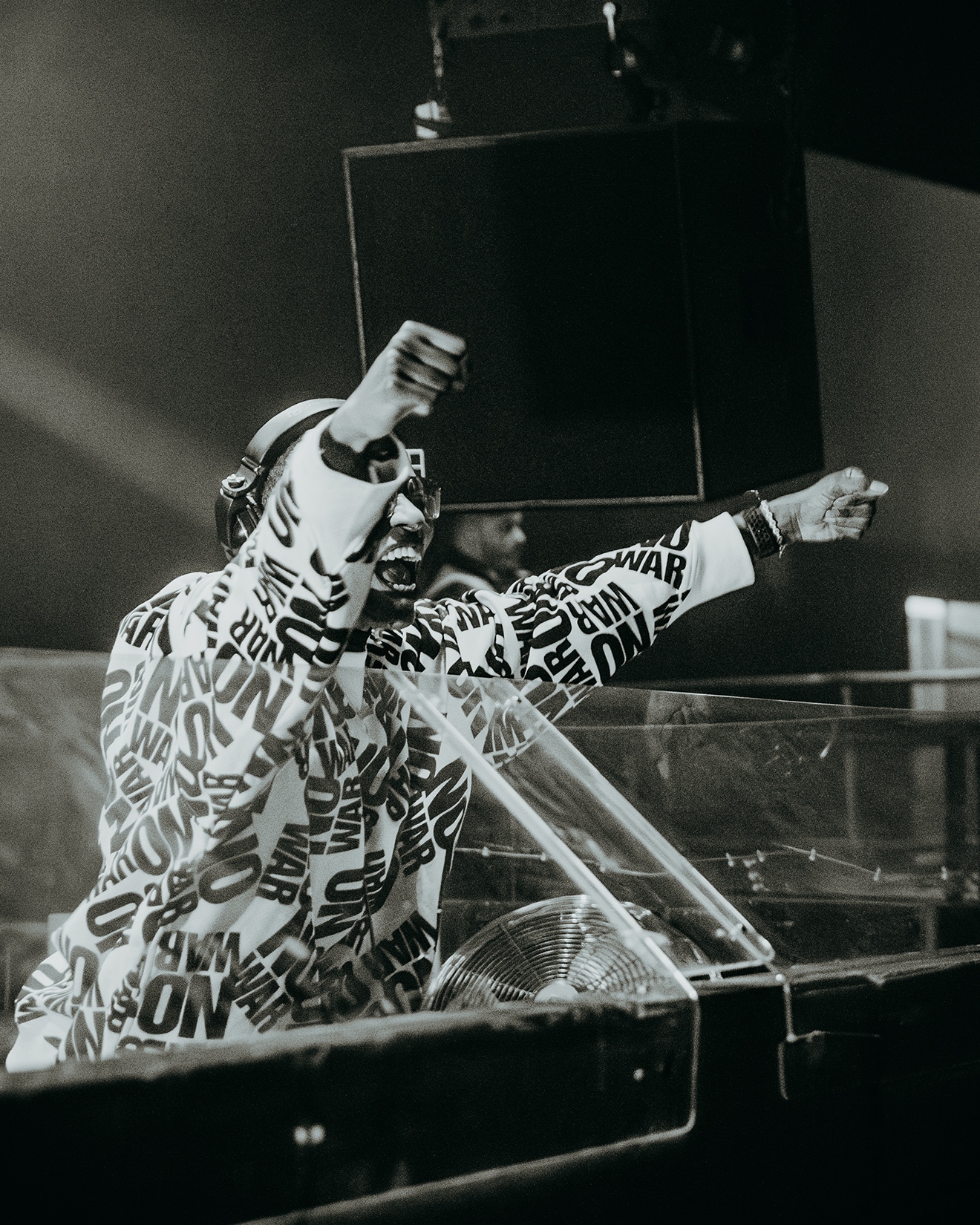
For DJ Paulette, getting out of the hole that she found herself in during the two years she spent in Ibiza, playing infrequent and badly paid nine-hour sets in hotels, bars and restaurants, meant dusting herself off and starting from scratch upon her return to Manchester. In Welcome to the club, she credits the help she got from Warehouse Project founder and Manchester Night Time Economy Advisor Sacha Lord among others, but it’s foremostly her own hard work that got her to where she is today – playing internationally, winning awards and revered as a pioneer within the electronic music scene. Part of this resurrection is her ability to foreground her story and her place in history, which she did exceptionally when curating a 2018 exhibition of her life at The Lowry titled Homebird, and which she does just as well in Welcome to the club. “You have to know who you are and how you’re going to market yourself,” she says succinctly.
Still, in some ways, DJ Paulette sees her work as only just beginning, especially when it comes to advocating for changes in publishing: “Magazines are still full of white guys, bros, and they say they can’t put older people on the cover, but they’ll still put Carl Cox or Gilles Peterson on the cover. Why can’t they put [women like] Cosmo or me on? And I think, why has it taken this long for someone to commission a book written by an older, Black female DJ? Because it’s the way it is, because it’s systemic.” DJ Paulette is intent on changing this, as she has been with breaking previous glass ceilings. “I always try to be the first to do it or the best. If I can’t be the best, then I’ll be the first,” she says. “If you’re the first it doesn’t matter if you’re the best, at least you’re the person with the balls to just do it, and then everyone that comes after, maybe they’ll be a million times better, but it took you doing it before they could be seen to be brilliant and better.” And this, perhaps, is the biggest lesson of Welcome to the club and DJ Paulette’s life story – be brave and fearless and you might just pave the way for the next generation.
Welcome to the club: The life and lessons of a Black woman DJ comes out on on January 23, pre-order it here
UK launch events take place in Manchester and London on January 25 and 26 respectively
Kamila Rymajdo is a freelance journalist and regular contributor to Mixmag, follow her on Twitter


